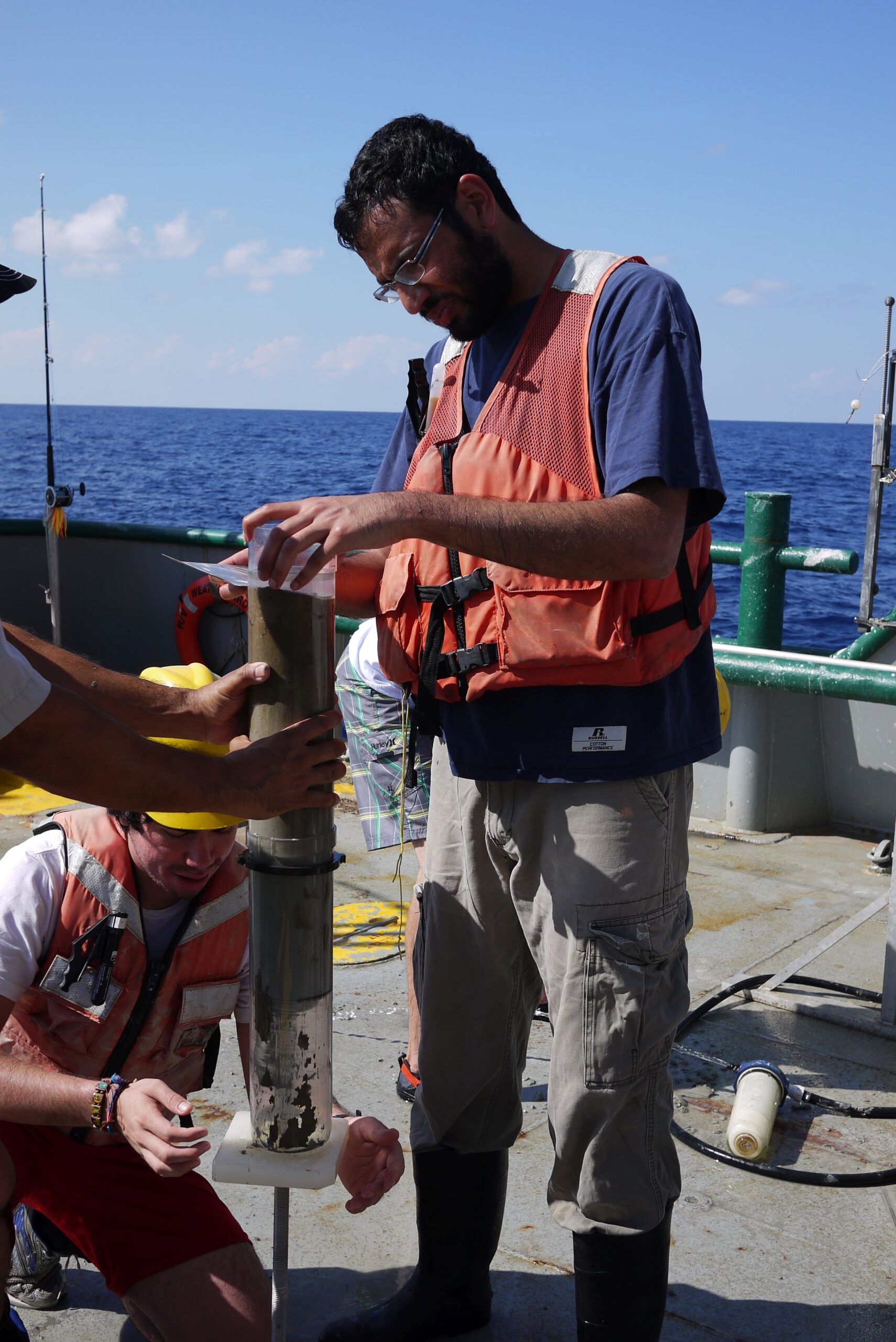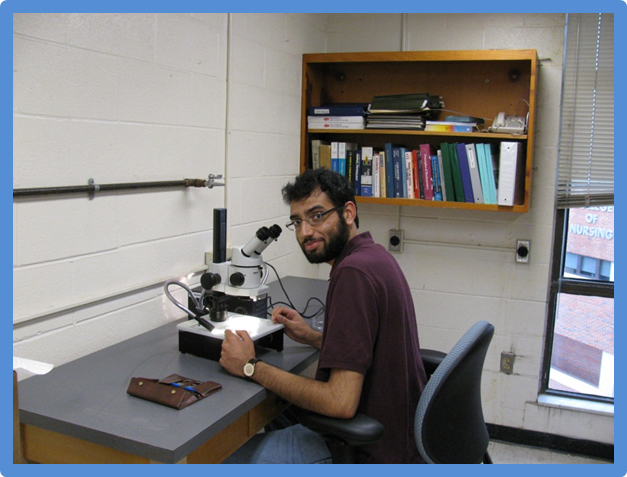Arvind Shantharam
PhD student, Florida State University
Twitter: @Lohitsa1
Linkedin: linkedin.com/in/
What has been your personal journey into the deep-sea? (Did you always know this is what you wanted to do, or start out on a completely different path? Did you return to school later in life after living at home with your parents? ahem, just me?) In other words, what unique journey led you to where you are now?
I have always been interested in the natural world and conservation, prompting my choice of Environmental Science as a college major. Upon entering grad school, I chose to embark on a marine science project for my degree but had no experience with the field. I took one course on biological oceanography and did a summer project working in a saltmarsh and I was hooked. I kept finding opportunities to work in marine science, especially in the field of deep ocean macrobenthology, and now it has become part of my career and a rewarding field to be in.
What is your current research question and why are you interested in this topic?
My interests center on the topics of untangling the scale of ecological processes driving patterns in biodiversity and ecosystem function. I am particularly fascinated about establishing baselines of deep-sea ecosystems, especially considering the deep ocean is coming under increasing scrutiny of commercial interests that want to exploit mineral and fuel resources. Mostly recently, my work has focused on characterizing deep-sea impact from the Deepwater Horizon on the DeSoto Canyon in the northeast Gulf of Mexico. Further, I worked to compare and contrast the diversity and structure of communities at multiple spatial scales: the local habitats within and adjacent to the DeSoto Canyon to the Gulf of Mexico basin as a whole. These projects lie at the nexus of my interests in marine science, exploration, and environmental conservation.

What have been some challenges in your work or in studying the deep sea in general? Has your research turned out how you expected?
The paucity of data in the deep-sea makes untangling the nuances in ecological patterns difficult, even in reasonably well-studied regions. But I am heartened by the ever-increasing empirical data being generated by fellow scientists, it has enhanced my own research by allowing me to ask new questions with my data and for future experiments.
Why is this work important to you and society as a whole?
I view the deep ocean as the last great frontier on Earth and we are only beginning to understand the ecological and ecosystem processes that go on there. This work continues to enthrall me because I and other scientists keep making new discoveries, both large and small. Society at large may not pay much heed to what happens on the bottom of the ocean but the organisms that live there and the ecosystem services they provide, in part, make the world we live in habitable. So my role in characterizing this makes the work all the more gratifying to do.
Because we are such an international organization, can you describe what the deep-sea science community is like in your region?
I live in the United States and the deep-sea science community here is vibrant, enthusiastic, and welcoming. The incredible work I do and all the wonderful experiences I have had doing deep-sea science would have not been possible without it. I am privileged to be part of it.
Why did you decide to attend graduate school?
Each stint in graduate school was motivated by a desire to learn new things about a field that fascinated me and enhance my skills as a scientist. More than that, it provides experience in soft skills that are not readily obtained everywhere such as writing, public speaking, critical thinking, leadership, and mentoring.
What advice could you offer to aspiring deep-sea biologists?
The work to become a deep-sea biologist may be hard but it’s worth it. Jump at every opportunity, big or small, to do the science, learn, and communicate. Be friendly and helpful to others, they will always return the favor. Also write your ideas down somewhere. Ignore them for a few days and then revisit them. If they still sound good, see if you can turn them into a project.
What do you hope to do following your program? (Non-profit work, government, academia, become an organic farmer? Ahem, still just me?)
I hope to stay in research as it remains the most rewarding part of my career. Whether that means staying in academia, the government sector, or a non-govermental organization remains to be seen. The great thing about science is that the skills and knowledge it provides has a million different uses and applications, and can create opportunities where least expected.

